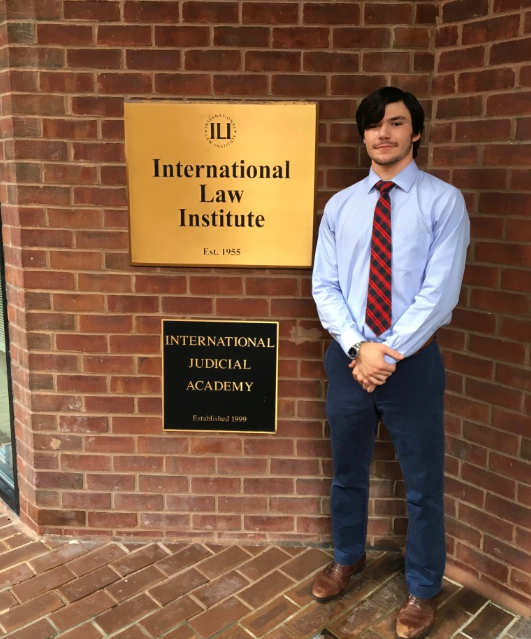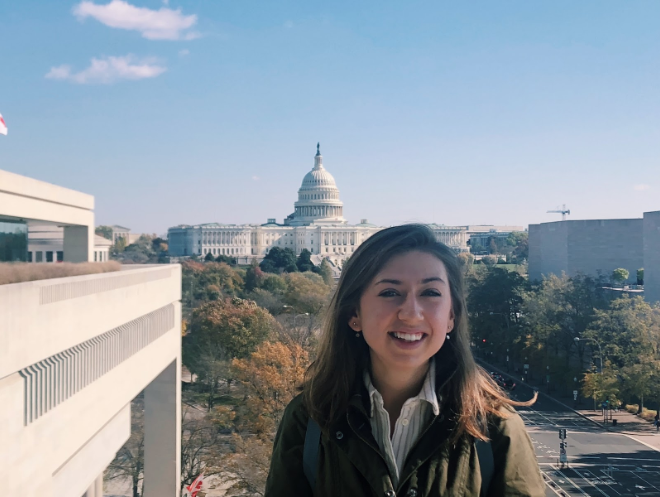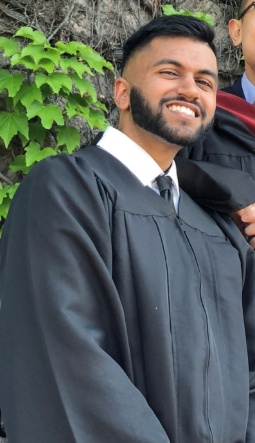Name: Christopher Gillis
Class Year: 2014
Title: Associate (Attorney)
Organization Name: Ropes & Gray LLP
1. In one sentence, what does your job entail?
Working with health care clients to help them do deals, solve problems, and expand their business in a highly-regulated industry.
2. What planned and unplanned events connected you to your industry and your first employer after Holy Cross? How did you learn/decide it was a good fit for you?
After falling in love with economics while I was writing my senior thesis, I thought I was going to pursue graduate work in economics and I found a job doing academic research (through my thesis advisor). I did that for a few years and decided I was looking for something that was still very analytical, but that offered a more inter-disciplinary/multi-disciplinary approach to solving problems, which I was very happy to find in the law. I’ve always been a planner and had very certain ideas about what I wanted for my future, so while going to law school certainly doesn’t seem like the riskiest of moves, it was a real learning experience to have to sit with the uncertainty/disappointment that comes with realizing your original plan just won’t quite work. There wasn’t a lot serendipity or many surprises that followed the decision not to get an economics PhD, I just needed to have an honest conversation with myself and the important people in my life to figure out what the right path would be.
3. What were you involved in when you were on campus?
A lot — there wasn’t a committee or workshop I’d say no to. Being an involved student was one of the true highlights of my time at Holy Cross. I had a few different positions on SGA’s executive cabinet, ran a few of the weekend workshops, was a co-chair of the Spring Break Immersion Program, and was a Manresa leader.
4. What was your major and how did it affect your career decisions?
This question was obviously somewhat answered above, but I was a very proud economics major. I think what I loved about economics is similar to what I love about the law. Part of the beauty of a liberal arts education is that you can deal so much in the abstract and the theoretical, but I really loved the practicality of economics, its applicability to the real world. The first class I took in the major was “Health Economics” taught by Melissa Boyle (my friend to this day). It was 2010, so right at the height of public debate over the Affordable Care Act (as if its ever really ended), and I loved how this one class had the ability to inform me and alter the way I thought about an issue that was so tangible and relevant to so many people. That same sensation has only ever really repeated itself for me in law school and, even more so, as a practicing lawyer. It’s also really not hard, as health care lawyer, to trace the through-line from Prof. Boyle’s Health Econ class on the second floor of Stein to the work I do everyday now.
5. What are one or two skills that you developed at Holy Cross that you use in your work?
I would say the biggest skill I learned is how to work. I can’t tell you how many people I want to law school with who were able to coast through four years of college at some really great schools because it just wasn’t challenging. I always felt challenged by the workload and rigor of Holy Cross and I think investing the time to do well in that environment has paid dividends to me both in law school and as a lawyer. Also, going back to being involved — I learned early on, especially in my role as Director of Academic Affairs on SGA, how to have substantive conversations with highly accomplished professional people and not feel overly intimidated. Being able to locate that poise feels like a uniquely Holy Cross skill, too. There aren’t too many places that bring students into the fold of institutional governance as fully as Holy Cross does, and that exposure was invaluable.
6. What advice do you have for students on campus today?
“On campus” is a funny phrase these days, isn’t it? I think I’d encourage people to treat your time at Holy Cross like a laboratory experiment. You have four years to try things out; see what works and see what doesn’t, and be honest with yourself about what does and what doesn’t. I can promise your life will be richer because of it and things will fall into place. And when you graduate, no matter what major you’ve chosen or what future you’ve laid for yourself, you’ll be accepted into a vibrant alumni community with open arms.












